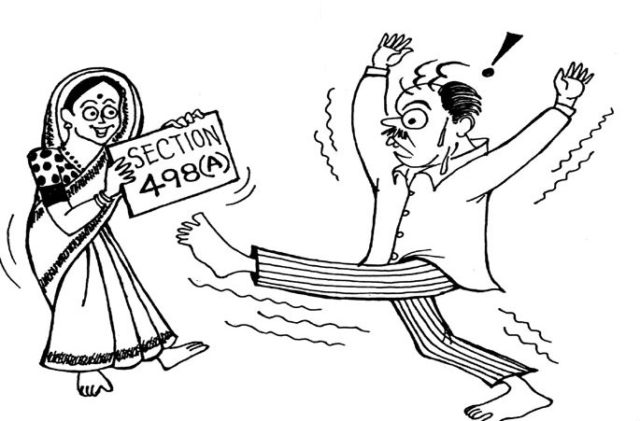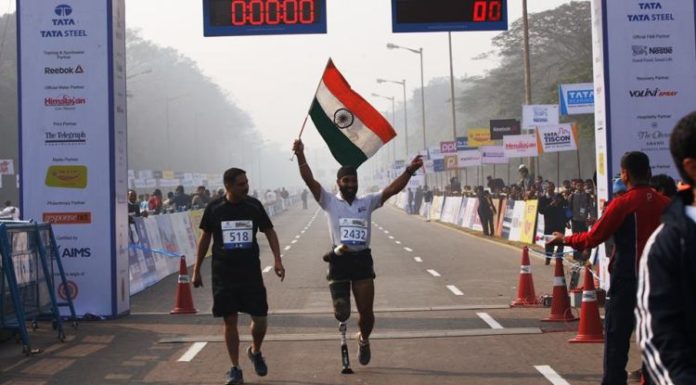When half a country’s population starts misusing the law to arm-twist the remaining half of the population, the result is: aggravated conflict. In case, you’re wondering which half of the population I am referring to about…I am actually talking about the women and their blatant misuse of the “once-dreaded” Section 498A of The Indian Penal Code. [Note: The quotes around “once-dreaded” are deliberate and I’ll get to it in just a moment.]

In case you’re not married (or married to a fair and just woman) and therefore have never had to deal with the mess that comes along with the infamous section of the IPC, let me quickly recap 498A for you (in order to put this article in perspective).
Section 498A of the IPC reads…
“Husband or relative of husband of a woman subjecting her to cruelty. — Whoever, being the husband or the relative of the husband of a woman, subjects such woman to cruelty shall be punished with imprisonment for a term which may extend to three years and shall also be liable to fine.”
“Cruelty” under the section refers to:
(a) any wilful conduct which is of such a nature as is likely to drive the woman to commit suicide or to cause grave injury or danger to life, limb or health (whether mental or physical) of the woman; or
(b) harassment of the woman where such harassment is with a view to coercing her or any person related to her to meet any unlawful demand for any property or valuable security or is on account of failure by her or any person related to her to meet such demand.
Truth is — and what becomes immediately evident upon a cursory reading of the section — 498A was brought in for a noble cause: to protect women from dowry demands, dowry deaths and matrimonial cruelty. Moreover, only when both ingredients [i.e. points (a) and (b)] are met and proved in case, can the offence be said to have committed.
But then, if 498A was brought in for a just cause, how then did it transform into a dreaded demon that seems to be hell bent on breaking the sacred bonds of matrimony forever? The reasons actually are many, but for the sake of brevity, let’s discuss the three most important points.
-
Cognizable
“Cognizable” offences are those offences where owing to the seriousness of the offence, the penal law awards the police the power to arrest without a warrant.
Obviously, when law puts unrestrained and unchecked power in the hands of the police, they are bound to misuse it. And that is the biggest problem with 498A. Thus, as soon as a complaint reached the police, the officers proceeded to arrest the husbands and his relatives, without so much as verifying the charges. Sadly, no one cared that it went against the very spirit and principles of natural justice.
-
Non-bailable
“Non-bailable” offences are those “serious” offences which are punishable with imprisonment for not less than three years. What was worse was the clear loopholes in the provision of 498A. For example, it did not even specify what was the difference between ‘harassment’ and ‘cruelty’. Neither did it talk about the basic tenet of law – ‘innocent until proven otherwise’. The law sadly presumed the exact opposite – ‘Guilty until proven otherwise’. This was nothing short of Legal Extortion, which was exploited well by lower class magistrates.
-
Non-Compoundable
“Non-compoundable” offences are those offences where the law allows for no compromise. That is to say, even if the wife wanted to withdraw her complaint, the law makes no provision for her to do so. If you now put the law into perspective, once a woman — even if done in a spurt of anger and vengeance — files a 498a complaint, she could not recall her complaint case. In such a situation, the man quite literally became the embodiment of Abhimanyu caught in [his wife’s] chakravyuh! Annihilation was absolute!






























Not only 498a other laws are also misused in India. The law has loopholes, yes, but it’s a choice between the devil and the deep sea. 498a can only be invoked by wife/daughter-in-law or her relative. Most cases where Sec 498A is invoked turn out to be false (as repeatedly accepted by High Courts and Supreme Court in India) as they are mere blackmail attempts by the wife (or her close relatives) when faced with a strained marriage. In most cases 498a complaint is followed by the demand of huge amount of money (extortion) to settle the case out of the court.